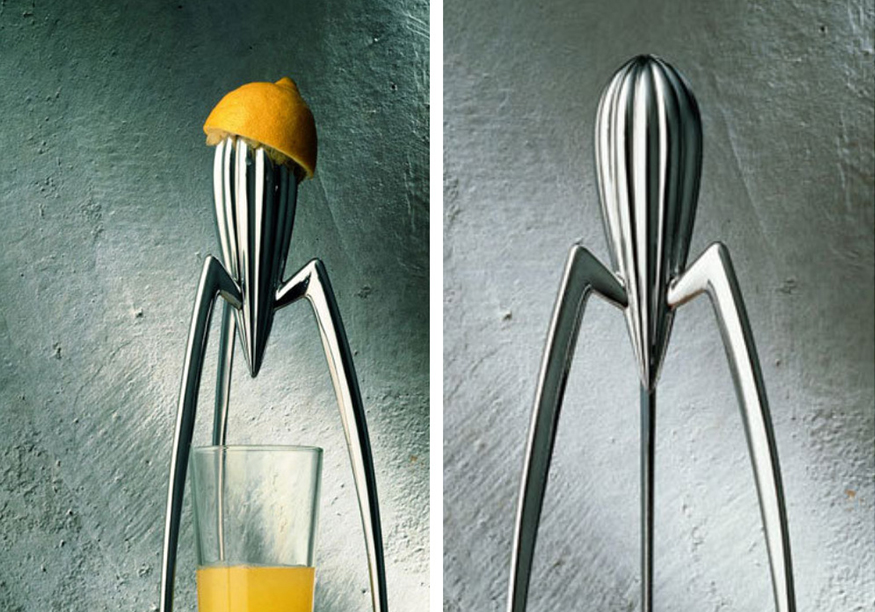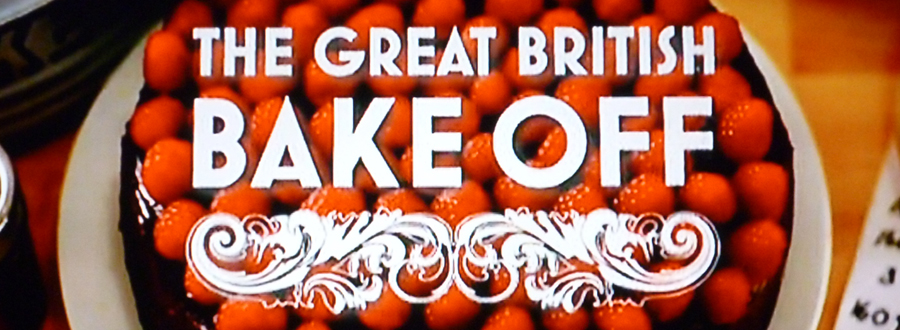Love it or hate it, you can’t escape The Great British Bake-Off, the BBC’s X-Factor for the baking world. Except, there’s no chasing a dream of the limelight here. Its presenters are funny, the experts on the cusp of national treasure status (Paul Hollywood’s even cracking Hollywood with the US export of the show) and perhaps, most importantly, the contestants are normal.
There are no aspirations to sell out Wembley, no heavily-staged, tear-jerking vignettes and showboating is very much off the agenda. Instead, it’s all about the love of baking and baking for pleasure. As its third season draws to a close with the grand finale this Tuesday (October 22nd), with anticipation and excitement levels reaching One Direction-proportions, can it really be that the baking is the only reason why we love this reality talent show so much?
Before Bake-Off makes its final leap (from BBC2 up into the big leagues of BBC1), it’s an appropriate time to stop and take a look back at the stratospheric rise of a brand that has managed to captivate men and women, young and old, from all parts of the country. In addition to countless books, websites, blogs and TV shows spawned off the back of Bake-Off, we’ve just finished the first ever National Baking Week, a charity initiative partnered with Great Ormond Street. We had the first ever legitimate dilemma over whether we should watch a baking talent show or a do-or-die England game (which would determine the little matter over whether our proud nation would participate in the next World Cup). There’s even something called ‘Baketopia’, a ‘100% edible pop-up’ held this month in London.

From a branding perspective, the numbers are impossible to ignore, with the baking industry today now worth a staggering £3.4 billion. As far as trends go, it shows no sign of abating and naturally, as Christmas approaches, the opportunity for brands to take advantage of this phenomenon is equally rising each month. However, beyond the sale of sieves, scales and sugar, the role of food has taken on much greater meaning within society. Its status is such that we can show off our talents when baking for friends, family or even colleagues, and perhaps do this at a fraction of the price and in a healthier way.
As a result, what we’re seeing is an evolution, as blenders, juicers, mixers and slicers become lifestyle choices, high on design pedigree and aesthetics in addition to functionality. Rather than purely functional products hidden away in cupboards, kitchens are increasingly featuring a number of intriguing and interesting products out on full display for visitors to observe and inquire about – much like French designer Philippe Starcks’ Juicy Salif lemon squeezer for Alessi. Now, this may be the worst, most impractical lemon squeezer ever created. But its beautiful design pedigree helped elevate Alessi to global brand status.

Previously, these high-end products only aimed at industry professionals, but now they find themselves on the shopping lists of aspiring amateur chefs, as well. Indeed, browse through the small appliances section of a John Lewis and you’ll find ‘entertainment’ as important as a quality and function for top brands such as Phillips, Delonghi, Kenwood and Siemens.
SEE ALSO: How Do You See Fast Food Brands?
The highest quality mixers now retail at well over £400, sitting comfortably amongst other options including Heston Blumenthal-endorsed juicers, cute tabletop ice makers and fondue sets. Perhaps these products will be used only once a year, but their purpose goes beyond their most obvious culinary function. Instead, they serve an equally important objective – prestige. Indeed, when keeping up with the Jones’s, the first port of call may well be their kitchen.
For brands, the opportunity is an invigorating one. For so many years, these products too often were obligatory, uninspiring and necessary purchases. A fridge every four years and a new microwave every three. But thanks to pioneering brands like KitchenAid, these products have broken out of the monotony of necessity and into the world of inspiration and impulse, aiming to connect with consumers on an emotional level.
Moving away from tools to ingredients, the fact that Betty Crocker – a convenience brand with huge resonance in the US – is reacting to this boom by launching a bold foray into the UK market is further telling. Capitalising on bake-off fever with its first UK ad, the visuals are striking, utilising actors and swing dancers to create a vintage 50’s vibe. Promoting not the product but the brand experience and lifestyle, this ad targets a completely uninitiated audience who may not know how to bake, but fancies having a go and sharing the emotions that The Great British Bake-Off has stirred in millions of fans.
As Bake-Off draws to a close next week and consumers begin to look seriously at their Christmas shopping lists, the chance for brands in this space to promote a lifestyle choice is one that needs to be grabbed with both hands. More so, with further competition approaching from Europe and across the Atlantic (as baking fever ascends to the level of global pandemic), the brands that will emerge into 2014 full of festive cheer will be those that use a variety of through-the-line tactics to get products into consumers’ hands this Christmas and deliver that aspirational, emotionally-led messaging to catapult the brand into style rather than function status. Brands have a lot to thank the BBC for. Once upon a time, gift wrapping a Magimix Heavy Duty Mixer to your loved one would have led you straight into a night on the sofa. Now it’s the perfect gift this Christmas!
Image credits: pompeyfoodblog.com, misscakehead.wordpress.com, gienahguevarra.wordpress.com
